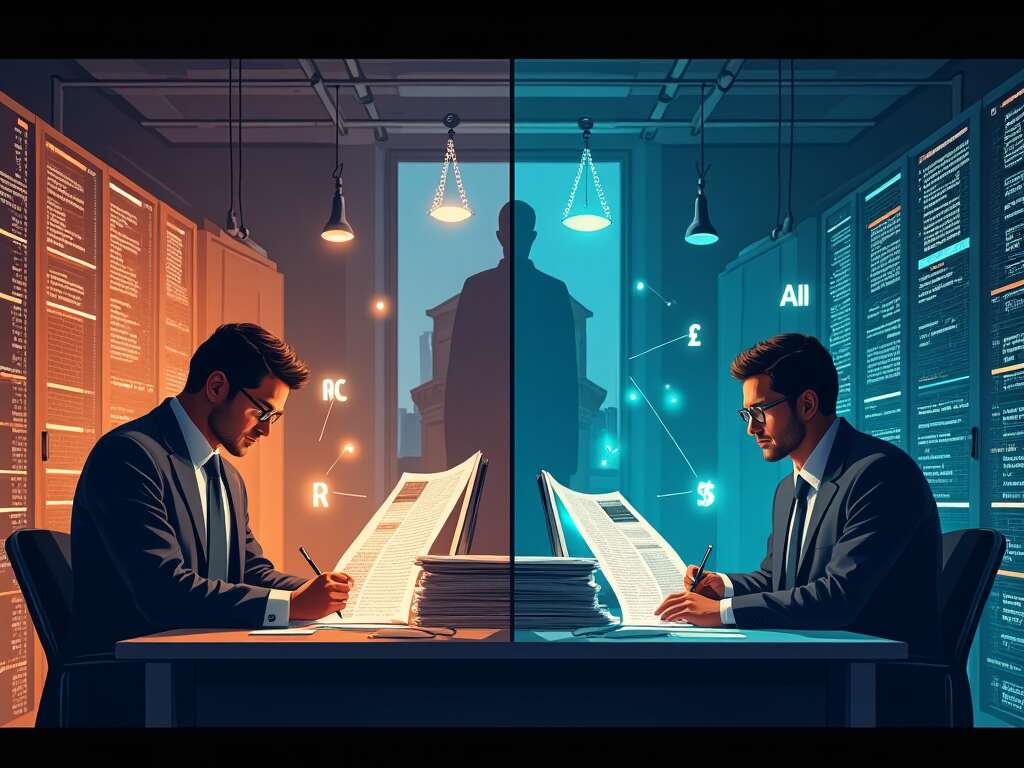
Introduction — When Journalism Meets the Courtroom
Suppose you open your morning cup of coffee only to find out that someone is using your words without your consent-machines. The enforcement tug-of-war between publishers of press titles and artificial intelligence companies has become a legal battlefield of lawsuits and licensing arrangements, but it is not cooling down. What happens when AI redesigns the story- and does not pay anything?
Court battles & Investigations: Publishers Hit Back
Over the past few months, an increasingly long litany of lawsuits has blown a hole in the Silicon Valley fog of innovation. Ziff Davis, which includes CNET, PCMag and IGN, says OpenAI had been scraping hundreds of its full articles deliberately and persistently without respecting robots.txt instructions and stripping them of copyright information. Cohere, a relative newcomer in the AI industry faces lawsuits all around the world by such giants as CondNast, The Atlantic and Forbes that claim that the AI company used more than 4,000 copyrighted works to train its models. In the UK, the BBC itself officially requested Perplexity to cease scraping its journalism, and deleting illicit data and also requesting negotiations concerning compensation. These legal machinations outside how much they reflect the new role of publishers as aggressive custodians of intellectual property as opposed to earlier days of being mere passive distributors of content.
The alternative route- Licensing Deals: A Differing Approach
Not every publisher is a believer in the courtrooms. Others are turning to contracts-and they are doing it with reason. An example is that OpenAI has signed multi-million-dollar licensing deals with media giants including Hearst, The Atlantic, Vox Media and News Corp, with the latter understood to be asking over 250 million dollars over five years. Along the way, the News/Media Alliance introduced an industry-wide collective licensing platform with ProRata AI-which will give publishers half of all revenue generated by their content through the Gist.AI platform-as well as accurate attribution. Publishers such as TIME and Factiva are also planning behind the scenes what can only be described as ethical partnerships combining both upfront payments with a variably hacked compensations based on usage levels with the drive being transparency.
Why It Matters- the Money & the Future of Journalism
It is not only dollar issue but it is survival. Misinformed AI response, wrongly assigned to reputable journalism, is capable of losing ad income as well as audience respect. The New York Times filed a lawsuit against OpenAI and Microsoft alleging that its articles shared millions of times on their platforms without permission, which expropriated traffic and diminishes its brand power. Meanwhile academic publishers are minting gold out of content- Taylor & Francis made around 75 million dollars last year through the licensing activities of AI and Wiley made 44 million dollars. They are explicit: content is currency: and publishers want what they are due.
Personal Take On It-Is Fair Use Fair?
I have made my money by editing and ghost writing in this niche and believe me when I say: fair use is still very fuzzy at this level. Yes, generative AI does well on large scale datasets. Does at least a token to the journalists need to be a part of the tens of billions spent on AI infrastructure? Robert Thomson, the current News Corp CEO was succinct: “Suddenly, The Art of the Deal has become The Art of the Steal” as AI companies produce derivative works of priceless creative works. I think litigation and licensing cannot be enemies, rather they should exist in a system that appreciates creativity and nourishes creativity.
Global Ripples -Legislation&Collective licensing
In the global context, the conversation is informing legislations. AI boundaries to “fair use” are under examination in the U.S. courts, such as Judge Alsup dismissing the appeal of Anthropic, leading to a trial in December 2025 potentially with multi-billion adverse outcome. Collective licensing entities are increasing activity in the UK: the Copyright Licensing Agency is considering blanket licensing of AI use comparable to scenarios already generating around 50m/year into the content owner rights pool. The outcome may be a unified machine-publishers paid and AI free to improve and not exploit.
Case study: Partnership model of ProRata
Take a closer look: News/Media Alliance in collaboration with ProRata AI provides an opportunity to allow the publisher to participate in a regime of goodsoil. Gist.AI recognizes content use, attributes credit to the publisher and shares revenue aggressively. Consider your newsroom witnessing attribution and payment whenever an AI uses your article for training—without stepping into a courtroom. That isn’t sci-fi; writers are drafting it now.
Conclusion — The Thorny Path Ahead
At which generation point are we at? Courts are going to clear up fair use—or break it. A licensing structure may become standard. But above all, the most important aspect today is that publishers seek to have their place in the sun, not only with bravado, but also with compensation.
That is my final point: If we marginalized journalism in making it nothing more than a free meal to the Artificial Intelligence, then what would be the future of informed discussion? What are we paying in exchange to enabling AI to level up at the expense of unpaid creators? It is more than money, it is keeping the conscience and credibility of the digital age intact.